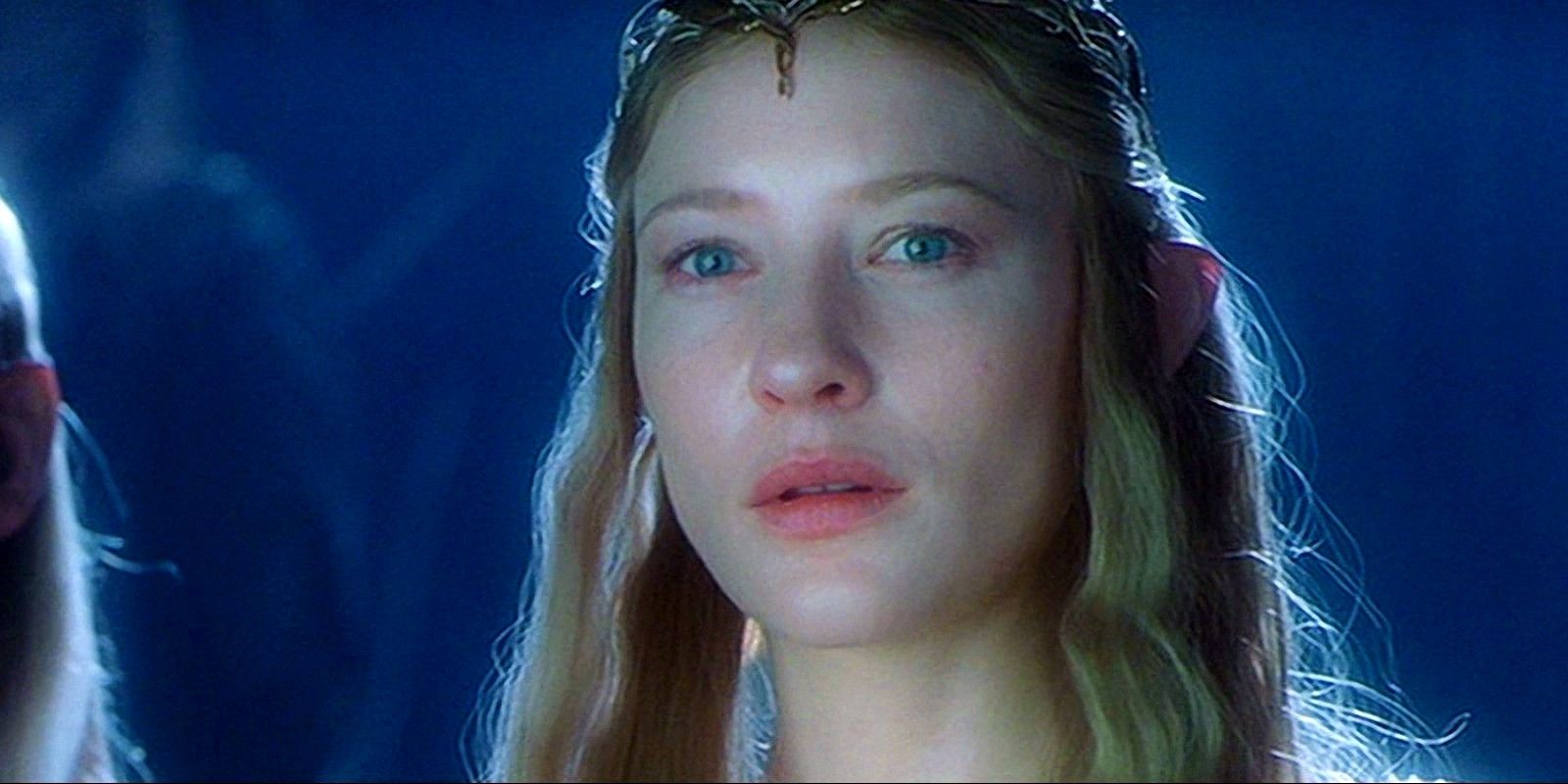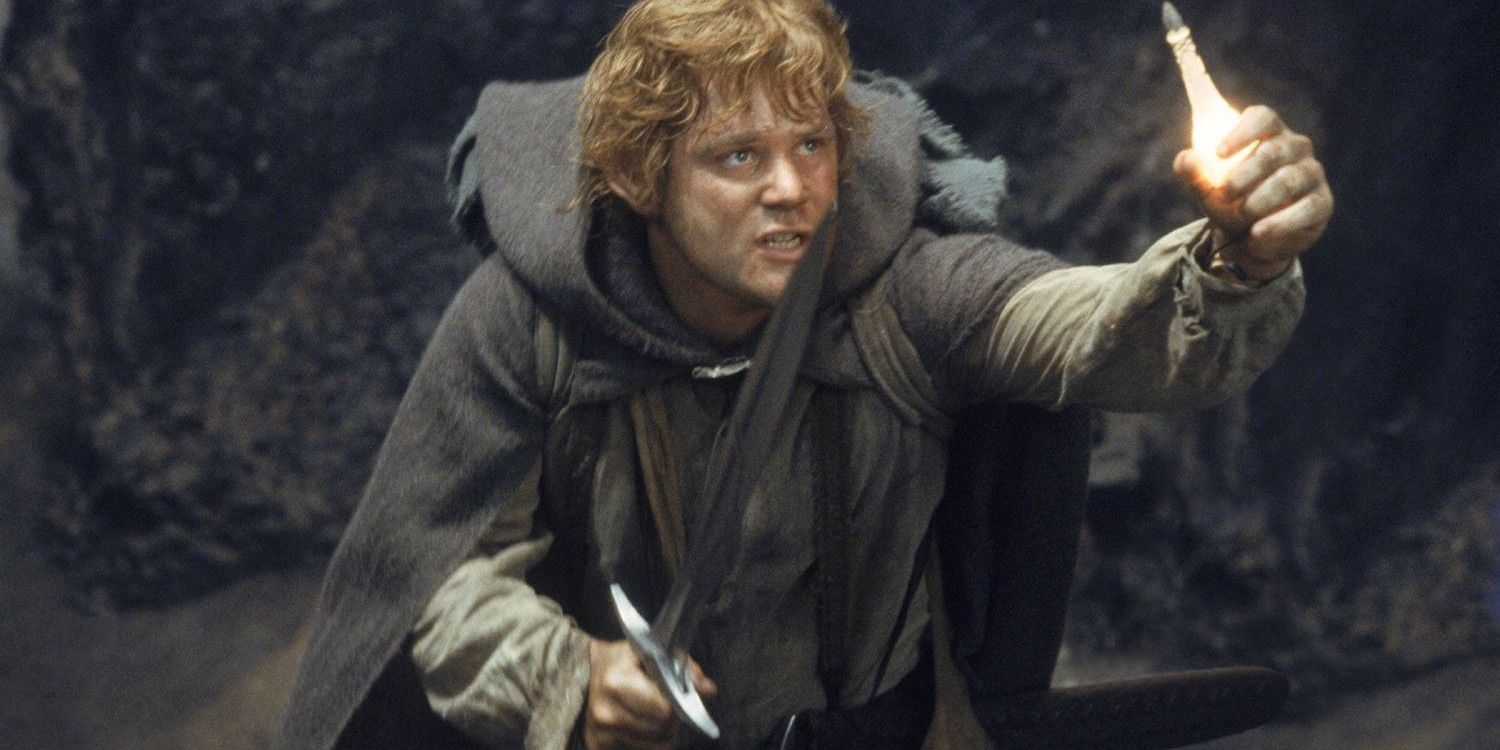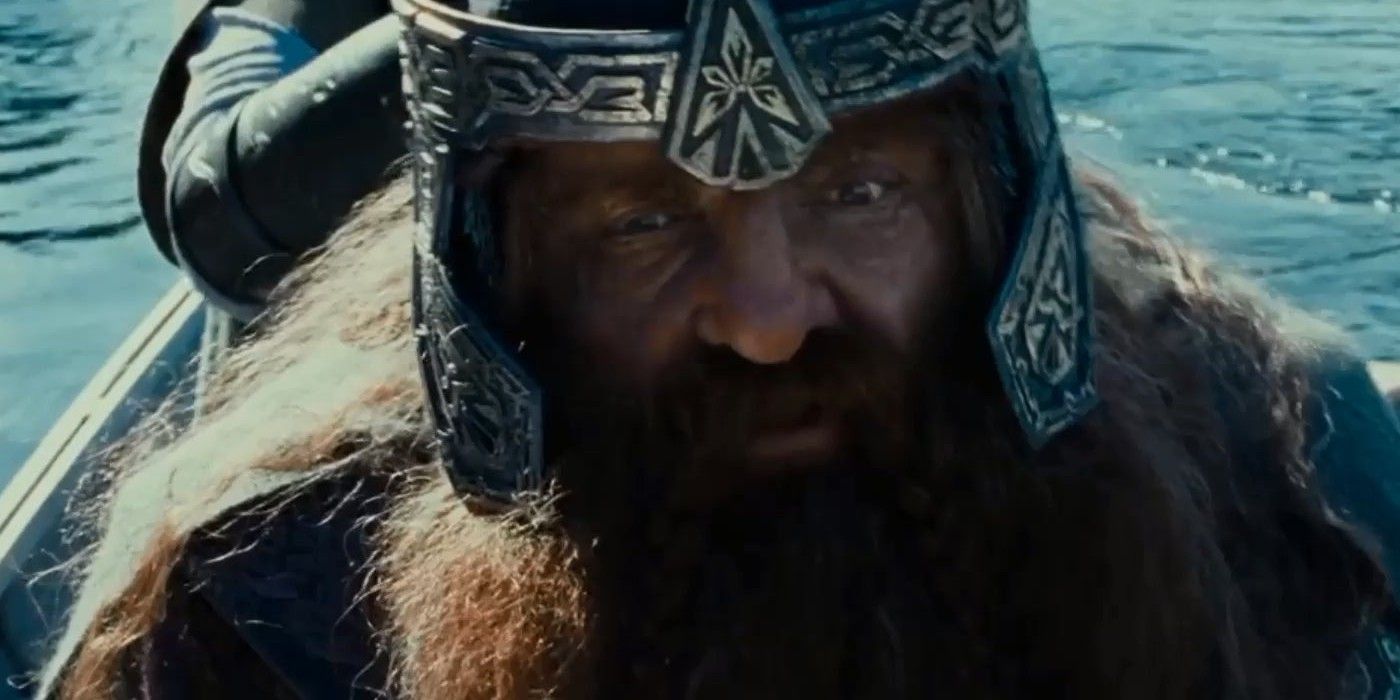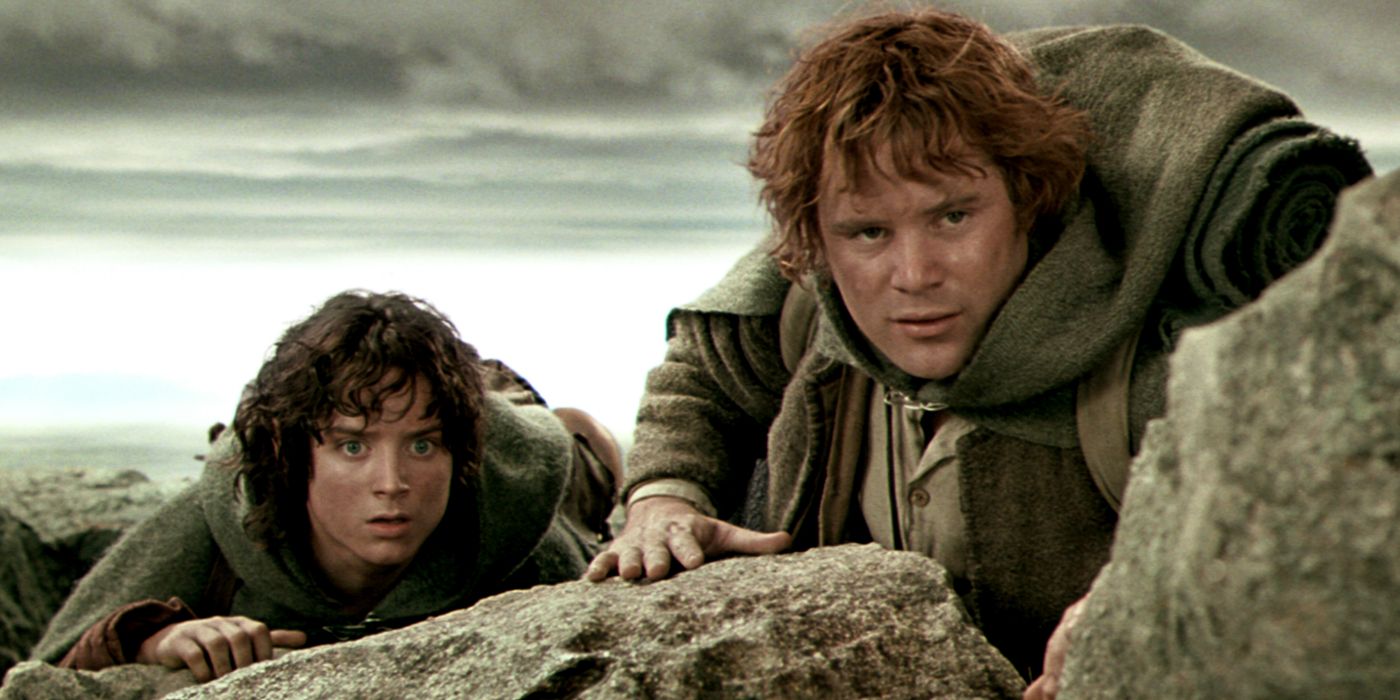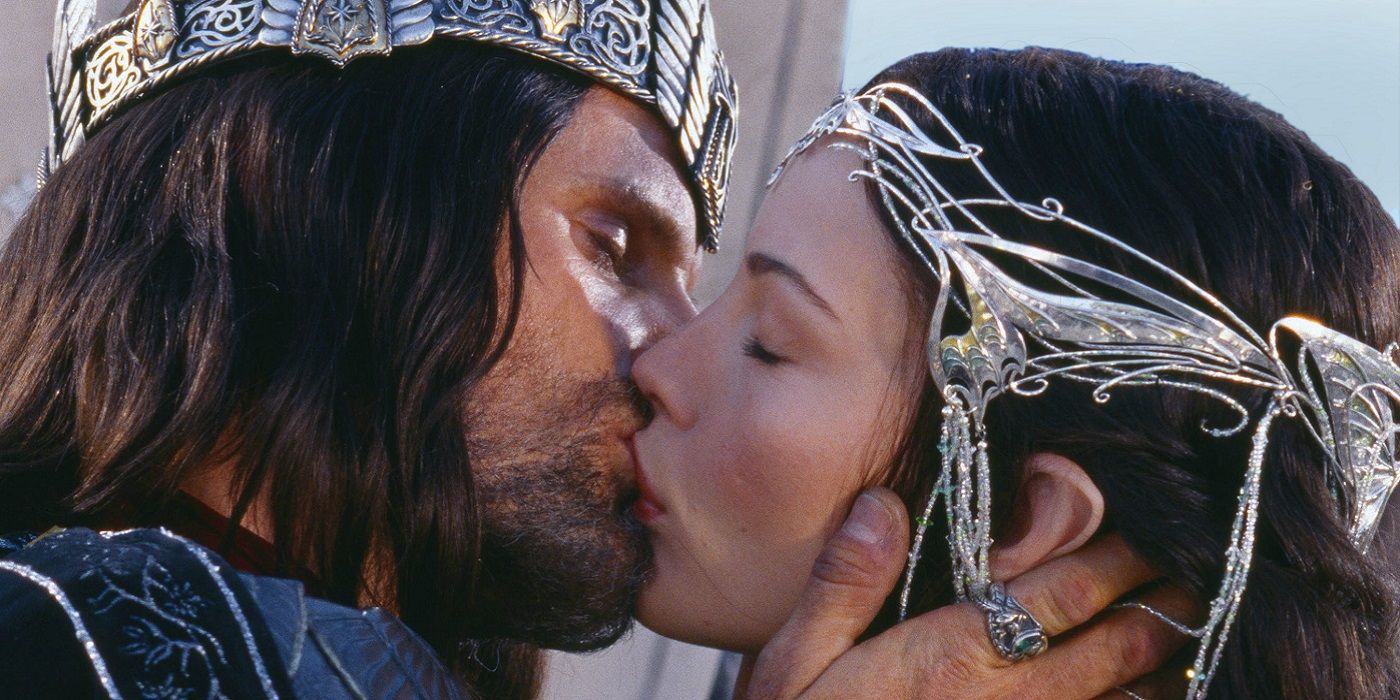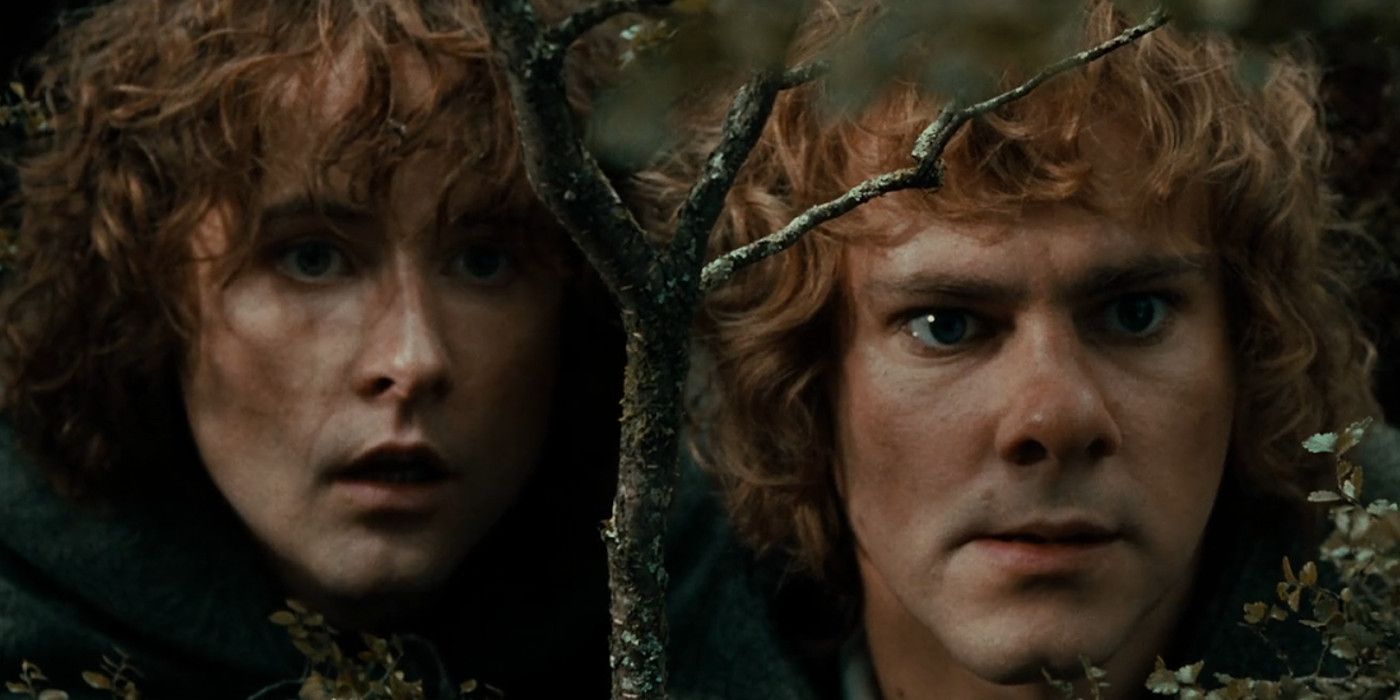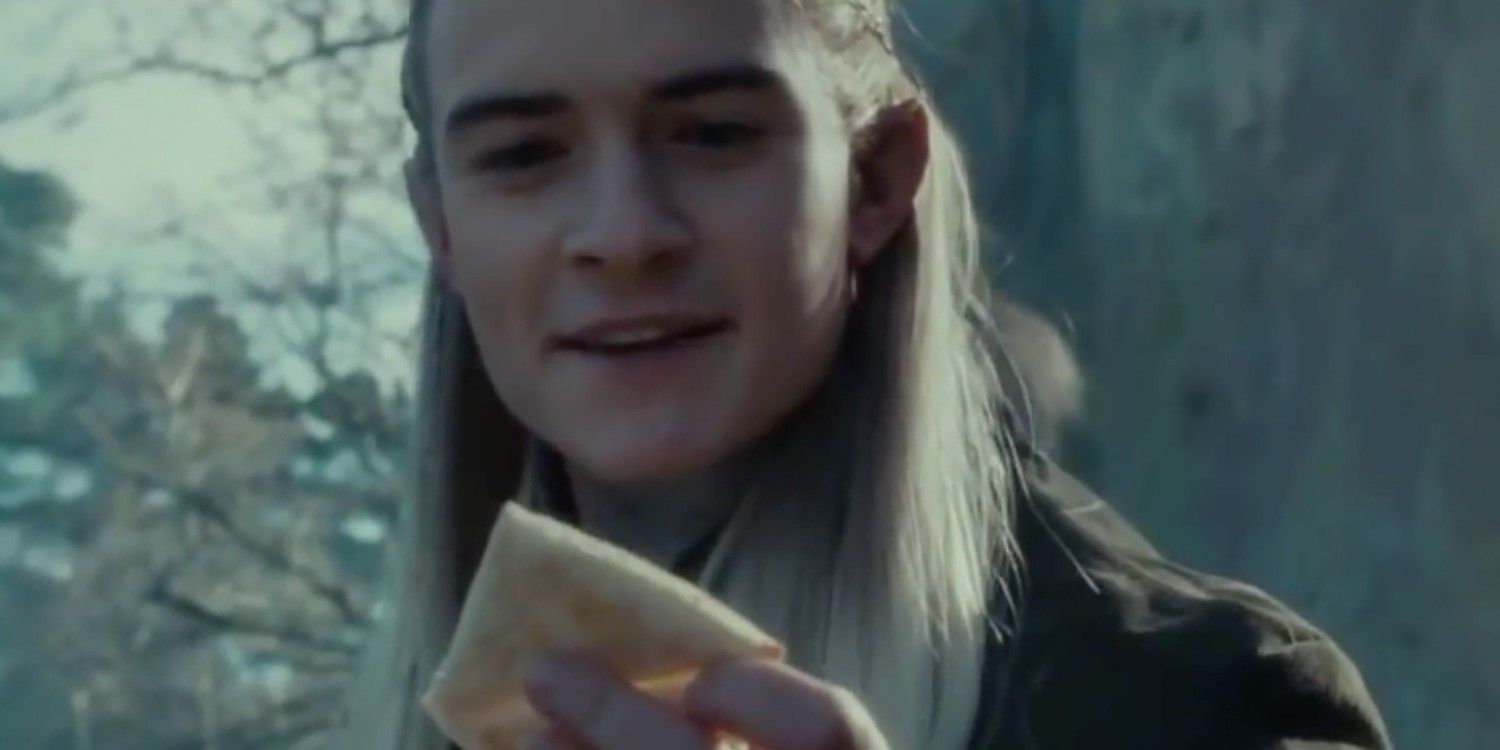Galadriel's gifts to the Fellowship were vital in the members' respective journeys in The Lord of the Rings, but what significance do they each hold? There are many central themes running through The Lord of the Rings; friendship, strength from unlikely places and the spirit of adventure are just some of the building blocks Tolkien lays on Frodo's path to Mount Doom. Another significant aspect of the tale is the distinctly different races dwelling in Middle-earth all coming together in the face of a common enemy. Without the brave men of Gondor, the assistance of Gimli the Dwarf or the divine direction of Gandalf, the Hobbit duo of Frodo Baggins and Samwise Gamgee never would've succeeded in their lofty mission.
A key moment in conveying this particular message comes in the realm of Lothlórien during The Fellowship of the Ring. Still wounded from the loss of Gandalf (how were they to know he'd be back with brand new robes?), the Fellowship find themselves in Elven territory, and the wooded paradise of Lothlórien offers brief sanctuary from the prying darkness of Sauron and his agents. Ruled by Galadriel and Celeborn, the Elves are typically hands-off when it comes to matters of defending Middle-earth, but their alignment is firmly against Sauron nonetheless. Although she doesn't lend her power directly, Galadriel bestows a series of precious gifts to the Fellowship before they depart her land.
These items prove incredibly useful even after the Fellowship take separate paths, but aside from their practical usage, the treasures also hold a deeper meaning for those who possess them. There are also some discrepancies between the gifts Galadriel hands out in the books and in Peter Jackson's movies, with the latter scene only being included in the extended edition of the film.
Frodo's Phial Of Galadriel
Certainly as for as the movie trilogy is concerned, Frodo's Phial of Galadriel is by far the most memorable gift bestowed upon the Fellowship in The Lord of the Rings. In Peter Jackson's telling of events, Galadriel only mentions to Frodo that the glass contains the light of Eärendil, the most favorite star of the Elves, and this glowing trinket appears to work well in repelling the evil minions of Sauron. These effects are seen in action when Frodo is faced with the giant spider known as Shelob, and works perfectly well as a metaphor for the power of light overcoming darkness - something Tolkien used frequently in his writings.
However, the full origin of the light of Eärendil is steeped in Lord of the Rings history. The light, taken from Galadriel's own fountain, is captured light from a Silmaril, one of several ancient jewels that sparked much warfare in the First Age. By wielding the light of Eärendil against the servants of Sauron (or Melkor before him), Frodo is brandishing something the beasts long since turned against; their Kryptonite, for want of a better comparison. The gift confirms the holy, intrinsically good nature of Frodo's quest, while also acknowledging the historic significance of the Ring-bearer in the annals of time.
Gimli's Strands Of Hair
The most curious gift of Galadriel's, and one that is consistent in both the book and movie versions of The Lord of the Rings, are the three strands of hair given to Gimli. Although the Dwarf initially requests nothing from Galadriel, he is pressed into asking anyway and claims to desire a stand of hair, given that Galadriel is the fairest creature Gimli has ever set eyes upon. This strange request is accepted, with Galadriel extending her kindness to a total of three strands.
Although the giving of hair as a present might be frowned upon for Christmases and birthdays, the strands are a token of Gimli's admiration for Galadriel, having previously had very little love for Elves of any kind, and a sign of stronger relations between the historically uncooperative races. Gimli's gift is also significant because he wasn't the first to ask for some of Galadriel's hair. Long before The Lord of the Rings, fellow Elf and creator of the Silmarils, Fëanor, would beg for a strand of Galadriel's locks, but was always refused, simply because Galadriel could sense he was a bad egg. However, she's happy to give Gimli more than he asked for because not only did the dwarf ask humbly, but she could see he was pure of heart. This story encapsulates another key theme in The Lord of the Rings: that heart is most important in judging a person. Fëanor was a mighty, noble elf, but Galadriel would rather placate a simple Dwarf if his heart be fairer. This significance might be lost on Gimli himself, but Legolas almost certainly understands the gravity of the gift.
Sam's Rope
Galadriel's gifts to Samwise Gamgee differ somewhat between the books and movies, but the inclusion of Elven rope can be found in both. Part of the reason Jackson was so keen to include the Lothlórien gifting scene in the extended edition of Lord of the Rings was because Sam uses the rope in The Two Towers when he and Frodo descend Emyn Muil on their way to Mordor. As well as easily holding the Hobbits' weight, the rope unfurls at the gentlest of pulls, indicating the quality of craftsmanship, and this scene only makes sense after seeing Galadriel hand out the gifts in the previous film. On screen, Galadriel makes a point of not giving Sam a dagger, even though he bashfully asks for one. This is because Sam is plainly not a fighter; he's Frodo's strong and stable support - his rope, essentially. There's also a sense that Galadriel is foresighted, predicting Sam would have use of the rope in the not-too-distant future.
The situation is a little different in Tolkien's original story. Here, Sam nabs the rope for himself thinking it might come in handy (it does) and is given an entirely different gift by Galadriel - a precious box containing Elven earth and the nut of a Mallorn tree. Sam would use these enchanted items to help restore the Shire after returning home from Mordor, but since Peter Jackson's The Lord of the Rings cut the Scouring of the Shire chapters, these gifts would've been pointless on screen. No need for some dirt and a nut on the road to Mount Doom, however rare they may be.
Legolas' Bow & Aragorn's Gifts (Or Lack Thereof)
While many of Galadriel's gifts are indicative of a deeper meaning in The Lord of the Rings, the reasoning behind giving a Galadhrim bow to Legolas is, essentially, because he's a damn good archer. The weapon is the same both on page and on screen, with the new bow a significant upgrade on its predecessor. Legolas would use the weapon liberally in the climax of The Fellowship of the Ring and even shot down a Fell Beast carrying a Nazgûl in the books.
Whereas Legolas might feel all his Elven Christmases have come at once, Aragorn gets nothing from Galadriel in the movie trilogy. Instead, she touches his Evenstar pendant and the pair discuss Arwen's love for him, allowing for some added exposition that was rightly cut from the theatrical release. Originally, however, Aragorn took several gifts away from Lothlórien. The first was a sheath to make his sword unbreakable, but the more important item was the Elfstone, a legendary jewel of the Elves that inspires Aragorn's royal name of Elessar when he finally takes the throne. On film, the Evenstar is almost a replacement of the Elfstone, which serves to make Aragorn and Arwen's relationship more significant, but leaves poor Strider with nothing to take away from Galadriel.
Merry And Pippin's Daggers/Belts
In Peter Jackson's The Fellowship of the Ring movie, Merry and Pippin are given daggers, which is a neat way of ensuring both characters are armed for the film's climax, but have little significance beyond that. By the time Merry gets his big moment stabbing the Witch-King in The Return of the King, he's already changed blades.
Slightly more interesting (although they surely would've preferred an Elven bow or Frodo's glowing insect repellent) are the gifts Merry and Pippin are given in Tolkien's books - two shining, silver belts. While these items aren't as historic as some of the other gifts, they serve to elevate both characters above the usual stature of a Hobbit. Interestingly, Boromir is also given a belt but with a gold clasp, perhaps reflecting the respective status of men and Hobbits in Middle-earth. In the film adaptation, Boromir gets nothing because Galadriel had the foresight to know what happens to characters played by Sean Bean.
Lembas & Other Fellowship Gifts
Aside from her personal selection of gifts, Galadriel also stocks the Fellowship with various other sundries that prove useful on their travels. Most of these are purely practical - boats to traverse the Anduin, cloaks to provide camouflage (or become an iconic movie costume) and a dagger from Celeborn. However, she also provides Lembas, the Elven bread that can fill a stomach with just one bite, and this becomes a key plot point during Frodo and Sam's arduous trek through Mordor. Although Jackson's The Lord of the Rings trilogy presents Lembas as little more than magic bread, the background of this food in literature comes directly from the Catholic Eucharist where one is said to eat the body of Christ through bread. As with Frodo's Phial, this inspiration reinforces the holy aspect of the Fellowship's mission in The Lord of the Rings.

